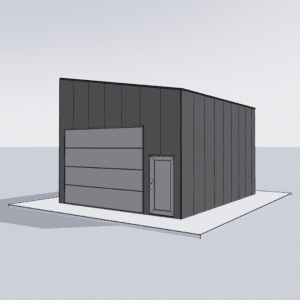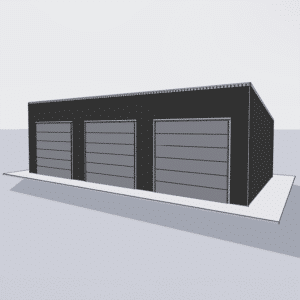When embarking on the exciting yet daunting journey of purchasing a home, conducting a thorough home inspection is essential. It’s the key that unlocks the past of a seemingly perfect house and reveals what’s truly inside the walls and beneath the floors. Whether you’re a seasoned real estate investor or a first-time buyer, understanding how to conduct a home inspection for buyers is crucial. So, where do you start, and what do you look for? Let’s dive into the heart of this vital process.
Understanding the Importance of a Home Inspection for Buyers
As a potential homeowner, you stand on the precipice of significant investment. A home inspection acts as a magnifying glass, offering a transparent look into the condition and potential future repair costs. Think of it as a pre-purchase check-up that can save you from inheriting costly problems. But why exactly is it so important?
A comprehensive home inspection can reveal hidden issues that are not visible to the untrained eye. Problems such as outdated electrical systems, roof integrity, and foundational sturdiness could be lurking under a calculated layer of paint. Not only does this inspection help you understand the repair needs, but it also offers bargaining power during negotiations and can influence the final purchase price. It’s about being proactive rather than reactive, ensuring you are making a sound investment for your future.
Key Areas to Focus On During a Home Inspection
You might have fallen in love with the dainty Victorian feature of your prospective home, but beauty is only skin deep. Let’s unfold the layers and identify what exactly requires your attention during a home inspection for buyers.
**1. Structural Components:** Begin with the foundation, walls, and roofing. Signs of structural issues include cracks in foundations, sagging or uneven floors, and roof leaks. It’s akin to checking the skeletal structure of a building. If these fundamentals have faults, it could lead to significant troubles down the line.
**2. Electrical Systems:** Outdated or faulty wiring isn’t just a financial burden; it’s a safety hazard. Look for any signs of exposed wiring or overloaded junction boxes. Ensure the electrical system complies with current standards and has enough capacity for modern-day needs.
**3. Plumbing:** No one likes unplanned swimming pools in their basement! Ensure there are no leaks, check water pressure, and ensure the plumbing system is up to code. A small drip can escalate into a deluge, transforming your dream home into a nightmare.
**4. Heating and Cooling Systems:** HVAC systems can be costly to replace. During a home inspection, verify their age and functionality. Proper maintenance records are a plus but ensure you check for signs of rust or other corrosion.
**5. Interior and Exterior:** From windows to walls, identify any damage, including water stains or mold. While minor cosmetics may not be deal-breakers, structural damage could indicate larger issues.
The Role of a Professional Inspector
While you might be tempted to conduct the inspection yourself, hiring a professional can provide invaluable insights. A certified inspector has the expertise to uncover issues that a layperson might overlook and can provide a comprehensive analysis that can aid in making informed decisions. They offer a checklist-like scrutiny that complements your emotional inclination towards a property.
Professional inspectors will cover all bases, from checking insulation levels to identifying potential pest issues and evaluating previous repairs. This thoroughness acts as a preemptive strike against future surprises and ensures you have all the necessary information.

Navigating the Home Inspection Report
So, you’ve conducted the inspection and have the report in hand — now what? Understanding and interpreting the home inspection report is crucial to distinguishing between minor repairs and significant red flags.
Each issue will be categorized by severity, ranging from minor maintenance tasks to potentially deal-breaking problems. This is where having a trustworthy real estate agent comes in handy as they can help you prioritize concerns. And remember, not all findings need to be fixed by the seller. Some can serve as negotiating tools, while others might be better addressed post-purchase.
Dealing with Construction Delays
When your inspection prompts necessary renovations, dealing with construction delays is an additional hurdle. Delays can stem from various factors, including weather conditions, unforeseen structural problems, or supply chain issues. For guidance on managing these challenges and keeping your project on track, explore our comprehensive resource on Dealing with Construction Delays.
Finalizing the Decision
With the inspection behind you, and the report in hand, the final decision lies before you. Equipped with detailed knowledge of your potential new home’s condition, you are now in a powerful position to negotiate and make informed decisions. Whether you decide to request repairs, adjust your offer, or move on to another property, a home inspection arms you with the facts needed to move forward confidently.
For those exploring Zillow or other platforms for property hunting, incorporating a professional inspection into your process is an indispensable strategy to prevent buyer’s remorse.
Exploring Residential Construction Options
If after your inspection, you decide building anew might be your best option, consider reputable Residential Construction services that can provide custom solutions tailored to your preferences. Learn more about Residential Construction at Your Building Team for reliable and tailor-made solutions.

The Bottom Line: Your Investment Shield
In conclusion, conducting a home inspection for buyers isn’t just a prerequisite but rather a prudent investment into your future happiness and stability. It turns a hopeful dream into a carefully calculated decision by revealing the state of a home in unblinking clarity. Avoid past mistakes, unnecessary costs, and unwanted stress by embracing this principal step in your home buying journey.
As you navigate the home buying process, whether dealing with existing construction or exploring metal building systems Ontario, Your Building Team stands ready to assist you. This way, your home into a solid investment that stands the test of time.










